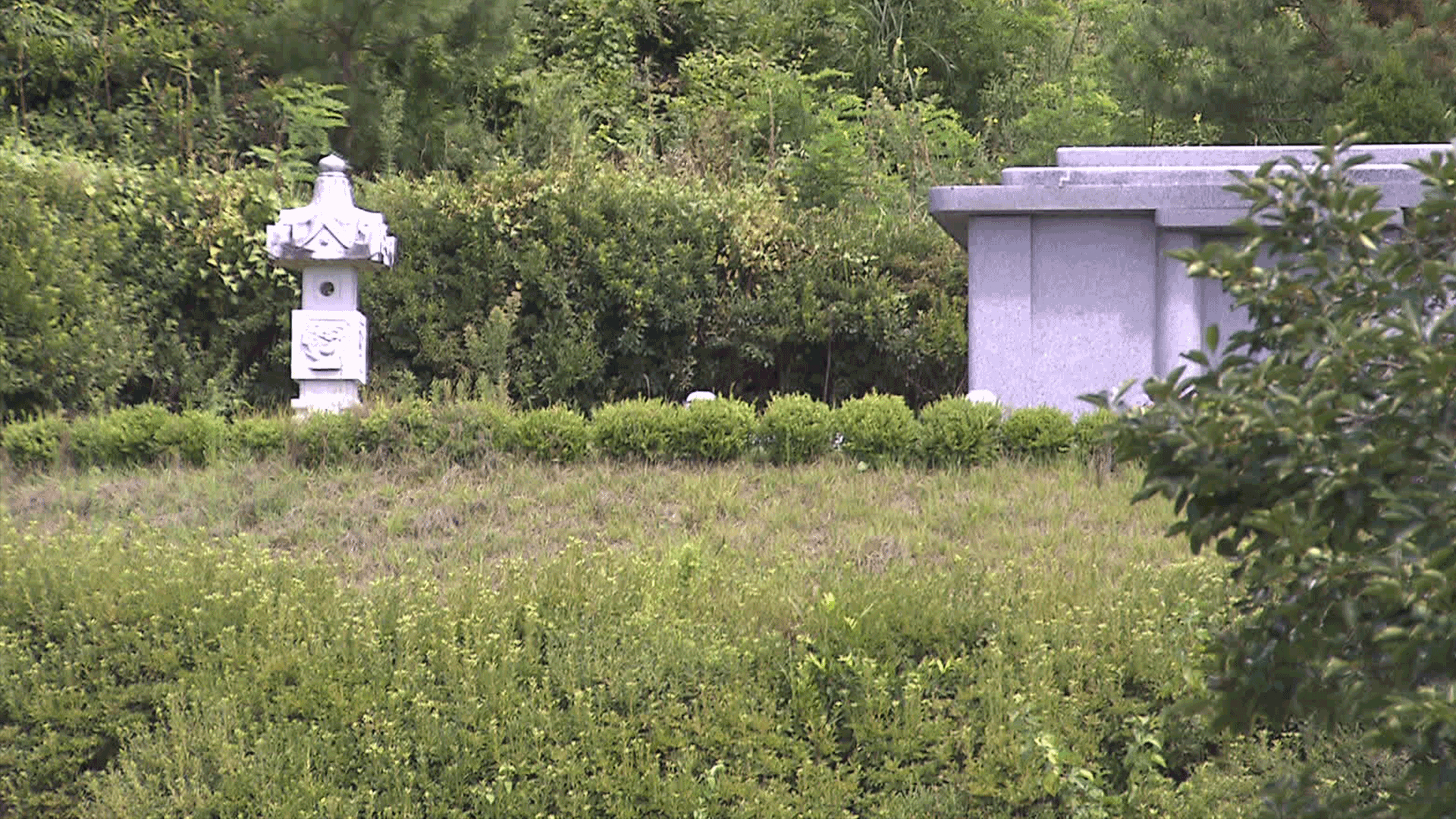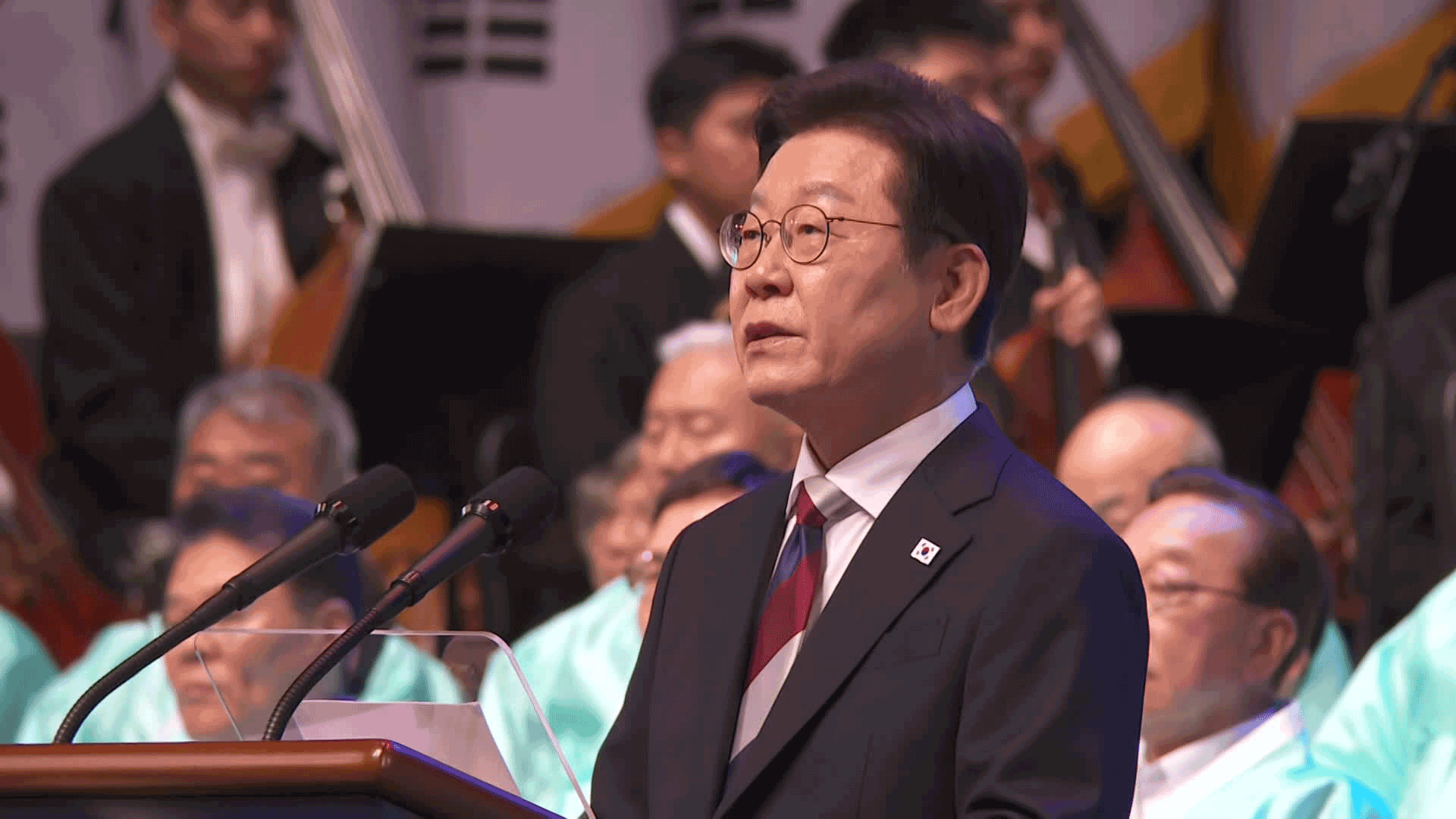[Anchor]
The government has been working on recovering the assets of pro-Japanese collaborators who amassed great wealth during the Japanese occupation in the late 2000s.
However, it has been confirmed that some of the recovered assets have since been passed back to their descendants.
Moreover, the recovery efforts are currently not being carried out at all.
Reporter Min Jeong-hee has the story.
[Report]
In May 1924, the Government-General of Chosun published an official gazette.
It states that Go Won-hoon was appointed as a member of the 'Jungchuwon,' an advisory body to the Government-General.
When the Second Sino-Japanese War broke out, he was a figure who urged Koreans "to become Japan's guardian deity" and claimed that "Japan and Korea are one body."
[Cho Mi-eun/Chairperson of the Historical Design Research Institute: "He emphasized that Koreans should be completely assimilated into Japanese and that the Japanese colonial government should guide them in that direction."]
He managed a military supply company and amassed enormous wealth, purchasing large tracts of land in Mungyeong, Gyeongbuk, in 1943 with that money.
It was only in 2008, 65 years later, that the Pro-Japanese Property Investigation Committee recovered a 7,000 square meter plot of land inherited by Go Won-hoon's grandson.
However, just 2 to 3 years after the recovery, in 2011, Go Won-hoon's great-grandson repurchased the land from the state.
This was possible because there was a burial site, allowing for a private contract.
Among the pro-Japanese lands recovered by the state, there have been over 340 cases of private contracts being made again.
Of these, 20 cases have been returned to the original owners or their descendants.
Some even resold the land they purchased, making a profit.
[Hong Kyung-seon/Former Expert Committee Member of the Pro-Japanese Anti-National Actors' Property Investigation Committee: "(Selling public assets) back to the descendants of pro-Japanese collaborators effectively returns the economic benefit to them."]
The fact that some recovery was possible was due to someone's efforts.
After the Pro-Japanese Property Investigation Committee ceased its activities in 2010, the government's tracking stopped, and all seven newly identified pro-Japanese lands were found by private individuals.
[Kim Nam-kyun/Reporter for Chungbuk In News/Pro-Japanese Property Tracker: "The state is not doing anything, and there is no special organization doing it. I thought I should do it myself…."]
The scale of pro-Japanese assets that have not yet been recovered is about 150 billion won.
[Yoo Min/Director of Planning and Coordination at the Heritage of Korean Independence: "Since the statute of limitations has already passed or is about to pass, if we don't act now, it will essentially be lost forever…."]
President Lee Jae-myung recently instructed relevant departments to recover pro-Japanese assets.
This is KBS News, Min Jeong-hee reporting.
The government has been working on recovering the assets of pro-Japanese collaborators who amassed great wealth during the Japanese occupation in the late 2000s.
However, it has been confirmed that some of the recovered assets have since been passed back to their descendants.
Moreover, the recovery efforts are currently not being carried out at all.
Reporter Min Jeong-hee has the story.
[Report]
In May 1924, the Government-General of Chosun published an official gazette.
It states that Go Won-hoon was appointed as a member of the 'Jungchuwon,' an advisory body to the Government-General.
When the Second Sino-Japanese War broke out, he was a figure who urged Koreans "to become Japan's guardian deity" and claimed that "Japan and Korea are one body."
[Cho Mi-eun/Chairperson of the Historical Design Research Institute: "He emphasized that Koreans should be completely assimilated into Japanese and that the Japanese colonial government should guide them in that direction."]
He managed a military supply company and amassed enormous wealth, purchasing large tracts of land in Mungyeong, Gyeongbuk, in 1943 with that money.
It was only in 2008, 65 years later, that the Pro-Japanese Property Investigation Committee recovered a 7,000 square meter plot of land inherited by Go Won-hoon's grandson.
However, just 2 to 3 years after the recovery, in 2011, Go Won-hoon's great-grandson repurchased the land from the state.
This was possible because there was a burial site, allowing for a private contract.
Among the pro-Japanese lands recovered by the state, there have been over 340 cases of private contracts being made again.
Of these, 20 cases have been returned to the original owners or their descendants.
Some even resold the land they purchased, making a profit.
[Hong Kyung-seon/Former Expert Committee Member of the Pro-Japanese Anti-National Actors' Property Investigation Committee: "(Selling public assets) back to the descendants of pro-Japanese collaborators effectively returns the economic benefit to them."]
The fact that some recovery was possible was due to someone's efforts.
After the Pro-Japanese Property Investigation Committee ceased its activities in 2010, the government's tracking stopped, and all seven newly identified pro-Japanese lands were found by private individuals.
[Kim Nam-kyun/Reporter for Chungbuk In News/Pro-Japanese Property Tracker: "The state is not doing anything, and there is no special organization doing it. I thought I should do it myself…."]
The scale of pro-Japanese assets that have not yet been recovered is about 150 billion won.
[Yoo Min/Director of Planning and Coordination at the Heritage of Korean Independence: "Since the statute of limitations has already passed or is about to pass, if we don't act now, it will essentially be lost forever…."]
President Lee Jae-myung recently instructed relevant departments to recover pro-Japanese assets.
This is KBS News, Min Jeong-hee reporting.
■ 제보하기
▷ 카카오톡 : 'KBS제보' 검색, 채널 추가
▷ 전화 : 02-781-1234, 4444
▷ 이메일 : kbs1234@kbs.co.kr
▷ 유튜브, 네이버, 카카오에서도 KBS뉴스를 구독해주세요!
- Pro-Japanese asset recovery halted
-
- 입력 2025-08-15 23:38:08

[Anchor]
The government has been working on recovering the assets of pro-Japanese collaborators who amassed great wealth during the Japanese occupation in the late 2000s.
However, it has been confirmed that some of the recovered assets have since been passed back to their descendants.
Moreover, the recovery efforts are currently not being carried out at all.
Reporter Min Jeong-hee has the story.
[Report]
In May 1924, the Government-General of Chosun published an official gazette.
It states that Go Won-hoon was appointed as a member of the 'Jungchuwon,' an advisory body to the Government-General.
When the Second Sino-Japanese War broke out, he was a figure who urged Koreans "to become Japan's guardian deity" and claimed that "Japan and Korea are one body."
[Cho Mi-eun/Chairperson of the Historical Design Research Institute: "He emphasized that Koreans should be completely assimilated into Japanese and that the Japanese colonial government should guide them in that direction."]
He managed a military supply company and amassed enormous wealth, purchasing large tracts of land in Mungyeong, Gyeongbuk, in 1943 with that money.
It was only in 2008, 65 years later, that the Pro-Japanese Property Investigation Committee recovered a 7,000 square meter plot of land inherited by Go Won-hoon's grandson.
However, just 2 to 3 years after the recovery, in 2011, Go Won-hoon's great-grandson repurchased the land from the state.
This was possible because there was a burial site, allowing for a private contract.
Among the pro-Japanese lands recovered by the state, there have been over 340 cases of private contracts being made again.
Of these, 20 cases have been returned to the original owners or their descendants.
Some even resold the land they purchased, making a profit.
[Hong Kyung-seon/Former Expert Committee Member of the Pro-Japanese Anti-National Actors' Property Investigation Committee: "(Selling public assets) back to the descendants of pro-Japanese collaborators effectively returns the economic benefit to them."]
The fact that some recovery was possible was due to someone's efforts.
After the Pro-Japanese Property Investigation Committee ceased its activities in 2010, the government's tracking stopped, and all seven newly identified pro-Japanese lands were found by private individuals.
[Kim Nam-kyun/Reporter for Chungbuk In News/Pro-Japanese Property Tracker: "The state is not doing anything, and there is no special organization doing it. I thought I should do it myself…."]
The scale of pro-Japanese assets that have not yet been recovered is about 150 billion won.
[Yoo Min/Director of Planning and Coordination at the Heritage of Korean Independence: "Since the statute of limitations has already passed or is about to pass, if we don't act now, it will essentially be lost forever…."]
President Lee Jae-myung recently instructed relevant departments to recover pro-Japanese assets.
This is KBS News, Min Jeong-hee reporting.
The government has been working on recovering the assets of pro-Japanese collaborators who amassed great wealth during the Japanese occupation in the late 2000s.
However, it has been confirmed that some of the recovered assets have since been passed back to their descendants.
Moreover, the recovery efforts are currently not being carried out at all.
Reporter Min Jeong-hee has the story.
[Report]
In May 1924, the Government-General of Chosun published an official gazette.
It states that Go Won-hoon was appointed as a member of the 'Jungchuwon,' an advisory body to the Government-General.
When the Second Sino-Japanese War broke out, he was a figure who urged Koreans "to become Japan's guardian deity" and claimed that "Japan and Korea are one body."
[Cho Mi-eun/Chairperson of the Historical Design Research Institute: "He emphasized that Koreans should be completely assimilated into Japanese and that the Japanese colonial government should guide them in that direction."]
He managed a military supply company and amassed enormous wealth, purchasing large tracts of land in Mungyeong, Gyeongbuk, in 1943 with that money.
It was only in 2008, 65 years later, that the Pro-Japanese Property Investigation Committee recovered a 7,000 square meter plot of land inherited by Go Won-hoon's grandson.
However, just 2 to 3 years after the recovery, in 2011, Go Won-hoon's great-grandson repurchased the land from the state.
This was possible because there was a burial site, allowing for a private contract.
Among the pro-Japanese lands recovered by the state, there have been over 340 cases of private contracts being made again.
Of these, 20 cases have been returned to the original owners or their descendants.
Some even resold the land they purchased, making a profit.
[Hong Kyung-seon/Former Expert Committee Member of the Pro-Japanese Anti-National Actors' Property Investigation Committee: "(Selling public assets) back to the descendants of pro-Japanese collaborators effectively returns the economic benefit to them."]
The fact that some recovery was possible was due to someone's efforts.
After the Pro-Japanese Property Investigation Committee ceased its activities in 2010, the government's tracking stopped, and all seven newly identified pro-Japanese lands were found by private individuals.
[Kim Nam-kyun/Reporter for Chungbuk In News/Pro-Japanese Property Tracker: "The state is not doing anything, and there is no special organization doing it. I thought I should do it myself…."]
The scale of pro-Japanese assets that have not yet been recovered is about 150 billion won.
[Yoo Min/Director of Planning and Coordination at the Heritage of Korean Independence: "Since the statute of limitations has already passed or is about to pass, if we don't act now, it will essentially be lost forever…."]
President Lee Jae-myung recently instructed relevant departments to recover pro-Japanese assets.
This is KBS News, Min Jeong-hee reporting.
-
-

민정희 기자 jj@kbs.co.kr
민정희 기자의 기사 모음
-
이 기사가 좋으셨다면
-
좋아요
0
-
응원해요
0
-
후속 원해요
0










![[속보] ‘김건희 집사’ 김예성 구속영장 발부<br>…“증거인멸·도망 염려”](/data/news/2025/08/16/20250816_B9Q5Zb.jpg)
![[한일여론조사] “일본에 호감” 52%…“과거사 반성 부족” 80%](/data/layer/904/2025/08/20250815_4pdsE0.png)



이 기사에 대한 의견을 남겨주세요.